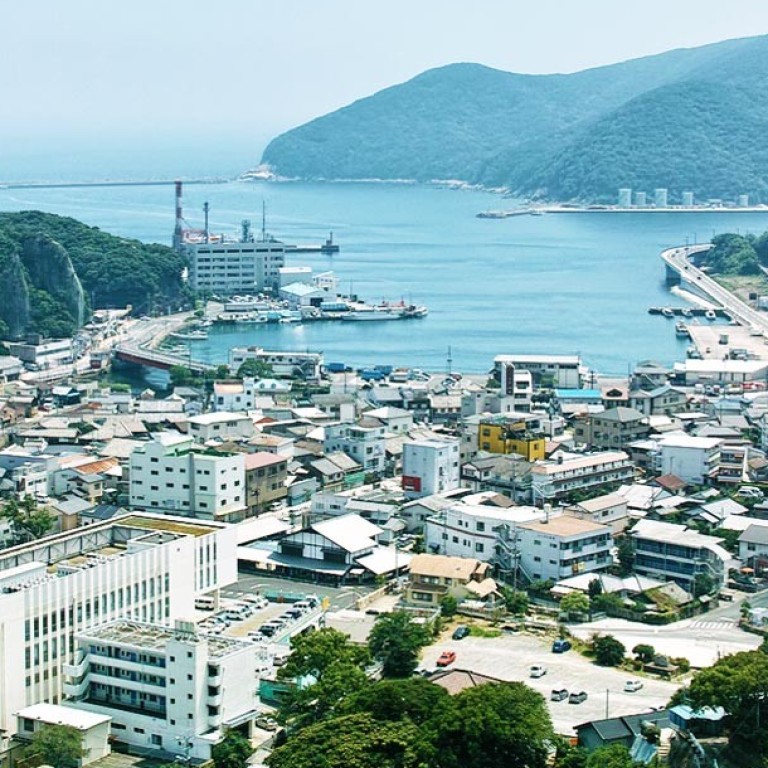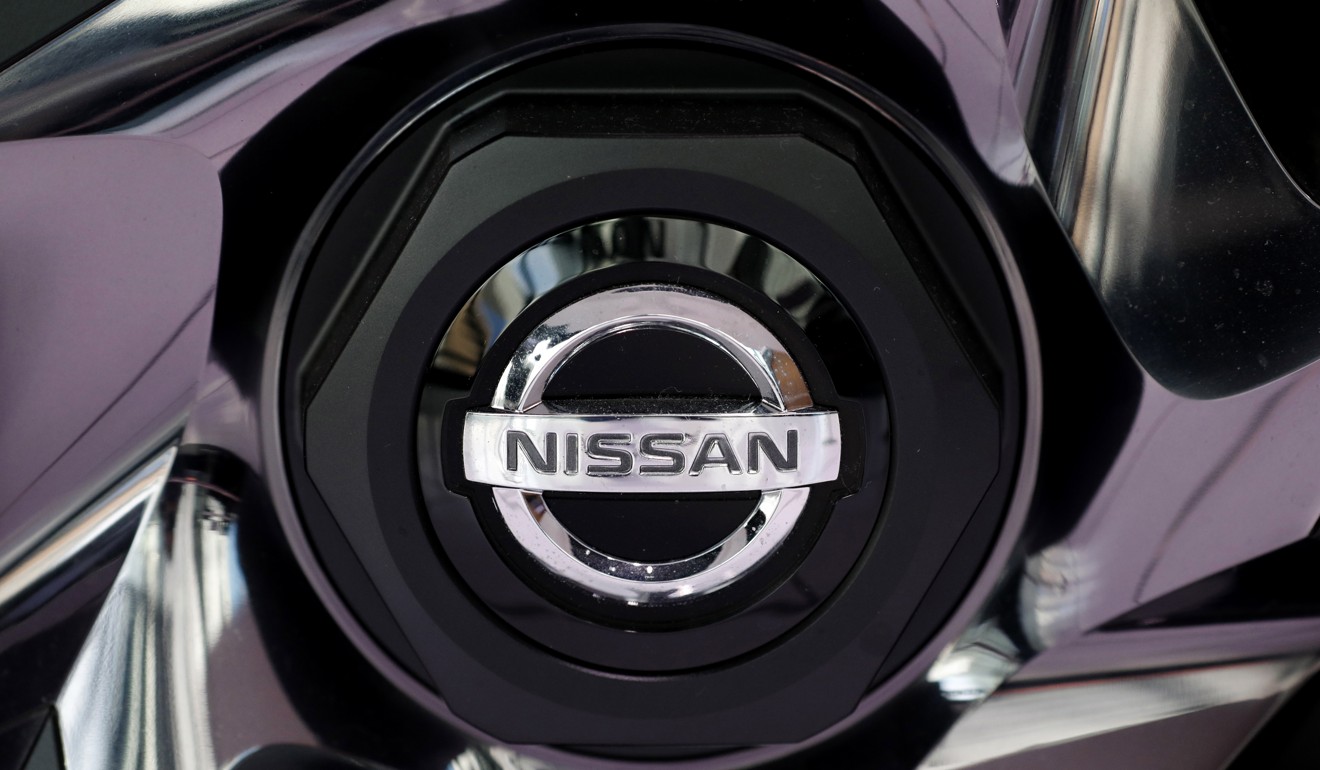
From Nissan sales to Tsushima tourism, trade spat with Korea hits Japan in the pocket
- The prolonged dispute has seen Koreans call for a boycott on Japanese products, with exports of everything from cars to beer dropping
- The island of Tsushima is among those suffering most, as its economy is largely reliant on visitors from South Korea
“It is a disaster,” admitted Hiroki Okamura, who works on the front desk of the Tsushima Grand Hotel. “About 80 per cent of our guests used to be Koreans who would come on the ferries, but they have just not come this year.
“I would be surprised if we have had 10 per cent occupancy through the summer. That’s a huge problem for us, but also for the whole island. I don’t know what can be done to change things.”
Each country has removed the other from its list of trusted trade partners, and Seoul has said it will not renew the intelligence-sharing General Security of Military Information Agreement pact. On Tuesday, Seoul said Tokyo had snubbed it for a naval event to be held in October, which is expected to host warships from the United States, Britain and China.
The spat has had a marked effect on trade and tourism. A report from the Japan Tourism Agency said 308,700 South Korean travellers arrived in Japan in August, down by 48 per cent from the same month a year earlier and the second straight month of decline – though the drop in July was a more modest 7.6 per cent.
Exports of food and drink products to South Korea in August fell 40.6 per cent from the same month a year earlier to 2.4 billion yen (US$22.32 million), according to the Ministry of Finance.
Beer shipments were the hardest hit within the food and drink sector, with imports in August down a remarkable 97 per cent from a year earlier to just US$223,000.
Japanese beer used to be the tipple of choice for many Koreans, but it has become less common in supermarkets and bars, with Korean drinkers increasingly turning to imports from China and Europe.
Suntory is, however, putting a positive spin on the situation, saying in a statement: “There has been a slight downtrend in sales of our products in South Korea. Considering the total scale of Suntory’s business, the impact is minor. We will continue looking into the situation.”
Japanese companies sold 1,398 cars in South Korea in August, less than half the amount sold in the same month last year. Nissan was the hardest hit by the boycott, with sales down more than 87 per cent. Honda’s sales were down nearly 81 per cent and Toyota saw its monthly figures shrink by more than 59 per cent.

There have also been reports that South Koreans driving Japanese cars have been accused of a lack of patriotism, and South Korean media has reported that Nissan was planning to pull out of the market entirely.
“That is simply speculation and, as such, it is not something that we would comment on,” a Nissan spokesman said. The official declined to comment on sales figures, market outlook or the impact of the boycott on the carmaker.
A spokesman for Fast Retailing in Tokyo did not confirm reports that sales at Uniqlo stores in South Korea have tumbled, saying: “The current issues involving South Korea and Japan have had some impact on our business but, in keeping with our standard practice, we do not disclose figures for individual markets. We are, of course, closely monitoring the situation for any longer-term impact.”
Mark Morimoto, a spokesman for Japan Airlines, said the company had not released the August figures for its routes between Japan and South Korea, but pointed out that the figure for July was up 6 per cent on the same month last year.
While he said the airline did “expect some impact on future reservations”, he added that it had not considered changes to either its routes to South Korean destinations or the frequency of its flight.
Budget airlines have not fared so well, however, with Japan’s Peach Aviation announcing that it is suspending flights on two routes in late October and a third route, between Osaka and Busan, in January.
Ironically, the boycott on travel to Japan may also be hurting South Korean airlines, with Eastar Jet asking cabin crew to take unpaid leave after scrapping a number of routes to Japan, while Korean Air and Jeju Air, the nation’s largest low-cost carrier, have also reported losses in the second quarter due to weak demand for flights to Japan.

Other tourism players say they have not felt much impact from the decline in Korean travellers as demand is still high from China and Taiwan, and there are still shortages of hotel rooms in some cities.
Tourists from mainland China are largest group of travellers to Japan, with 1.05 million visitors arriving in July, an increase of 19.5 per cent from the same month in 2018. There were 459,200 travellers from Taiwan in the same month, a figure similar to the same month last year.
“The boycott has not had any impact on our sales because Koreans only make up a small number of our guests, so we are not worried,” said a spokesperson for the Aman Tokyo Hotel.
The Okura Hotel also said there has been no effect on bookings.
Officials of the Huis Ten Bosch theme park and hotel complex in Nagasaki Prefecture – opposite the southern tip of the Korean peninsula, to which it is linked by a ferry service – said Korean visitors were down “by about half”, but that Taiwanese visitors typically made up the majority of overseas guests.
But Tsushima Island, which is also in Nagasaki prefecture, does not have the luxury of alternatives. At the tourist information bureau at city hall, Hitoshi Funahashi is also downbeat.
“We have relied on South Koreans for 99 per cent of our arrivals but visitor numbers were down by 80 per cent in August and I expect it will be the same for September as well,” he said. “Hotels, restaurants, the ferry companies, they are all suffering.”
Tsushima’s geography means it is not easy for visitors from other countries – such as China or Taiwan – to reach, Funahashi concedes.
“We have relied completely on the Korean market; now we have to reach out to Japanese to see if they will come instead,” he said.


